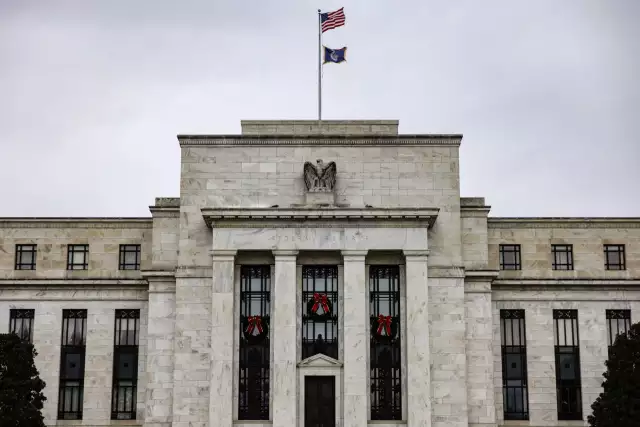On The Wrong Side Of A Speculative Bet
A report from USA Today. “Kristina O’Donnell, a real estate agent in Collegeville, Pennsylvania, said some sellers’ asking prices are now falling almost daily. ‘Instead of sellers having 30 appointments over a weekend, maybe it’s down to about a handful for some homes,’ O’Donnell said. ‘It’s amazing because homes were selling 10% to 20% more about three months ago and that’s probably frustrating for a seller today who saw their neighbor get as much as $100,000 over their asking price,’ said Ryan McLaughlin, CEO of the Northern Virginia Association of Realtors.”
Bay Area News Group in California. “Brace yourself: Home foreclosures are on the rise in the Bay Area after grinding to a halt for most of the pandemic. In recent weeks, Jason Estavillo, a foreclosure attorney in Oakland has been flooded with calls from homeowners worried their forbearance agreements are now ending. ‘Banks are asking for a balloon payment up front of all arrears during the forbearance period,’ Estavillo said.”
“The spike in foreclosure activity comes as the scorching pandemic Bay Area housing market is entering a cooling phase amid rising interest rates squeezing buyers and a growing supply of homes for sale. The median sales price of existing single-family houses in the region dipped 7% from May to June to $1.4 million, according to the California Association of Realtors.”
From NBC 4 in California. “San Diego is one of the fastest cooling housing markets in the entire country, according to Redfin. ‘The last two months I would say we’ve seen a slow down so even with people attending open houses it’s a little bit slower, but I will say for the buyers that are out in the field right now, they’re making huge wins because sellers are realizing the market has shifted and now, we are actually seeing concessions and those concessions were not happening before,’ San Diego Realtor Destiny Roxas said.”
From Realtor.com. “For the week ending July 16, new listings dropped by 3% year over year—the second straight week of declines. Danielle Hale, chief economist for Realtor.com theorizes this downward dip comes from panicked home sellers worried that the bacchanalian sellers market that has showered them in bidding wars over the past two years might be waning. ‘If sellers get spooked that they’ve ‘missed the peak’—a question I’ve been asked more times than I can count lately—the market will stagnate,’ warns Hale.”
“Meanwhile, housing inventory overall rose by 29% over a year earlier, but with new listings dwindling, a larger portion of these homes for sale are ‘stale’ ones that many buyers have already picked through and passed over. This might help explain why the share of homes that slashed their list price reached 14.9% in June versus 7.6% a year earlier.”
The Ahwatukee Foothills News in Arizona. “The question to ask is how much of that value is going to disappear as the market slowly shifts to a more buyer-oriented market? Let’s look at the factors that have affected both the supply and demand for housing across the Greater Phoenix area, then we’ll examine the Ahwatukee market in particular. More sellers are placing their properties on the market sensing that now might be the best time to cash in on historically high prices and ease of selling. Unfortunately, new sellers in most cases have missed the top of the market and are having to reduce prices or offer incentives to get their properties sold.”
“Keeping pace with the broader Phoenix Metro area, Ahwatukee has seen a significant increase in properties for sale from the 60s earlier this year to 201 at the end of June. Sellers should make certain their properties are in excellent condition and priced for a market that has buyers more in control of the transaction. Price reductions or concessions to complete a transaction are becoming more common, overbidding the asking price by aggressive buyers has all be disappeared. Focusing on recent closing prices of similar properties is likely to value the property above the market, leading to chasing the market down with price decreases.”
From The Street. “West Coast Schadenfreude (Is That Boom Finally Over)? Home Sellers are Doing the Unthinkable (in Some Markets). The leader, by far, was the city of Reno. The second-biggest city in Nevada has a median listing price of $677,500 but saw 32.6% of its listings with price cuts. The trend, by now, is clear — almost every city on this list saw a spike in new residents during the pandemic and had its sights set by developers as a city that was ‘exploding’ into a prime investing opportunity.”
The Los Angeles Times. “Healthcare worker Cleveland Wishop landed at Baltimore-Washington International Airport last fall expecting to retrieve his car from long-term parking and drive home. His blue Camaro had vanished. The dealer who sold him the 2010 car a year earlier seized it after Wishop fell just 19 days behind in making his August payment. ‘I was pissed, extremely,’ Wishop said.”
“Pentagon Federal Credit Union has one of the largest portfolios of used-auto loans, about $3.6 billion as of March. That’s up a whopping 80% from a year earlier. As of March, the dollar volume of delinquent accounts 60 days or greater has more than doubled from a year ago to about $45 million, according to quarterly filings. Other lenders may face higher risk because of their large exposure. In Orange County at Westminster-based LBS Financial Credit Union, for example, autos make up 70% of its total loans.”
“‘You do see some financial institutions, including credit unions, pretty deep in subprime autos, and should that market turn suddenly and viciously, they’ll find themselves on the wrong side of a speculative bet,’ said Aaron Klein, a senior fellow at the Brookings Institution.”
“Iieska Packard of Fresno, a 43-year-old licensed vocational nurse, was at her company office last year when a colleague asked, ‘Isn’t that your car getting towed?’ Packard raced down the stairs and out the door, but it was too late. Her 2017 Lincoln MKX was gone. ‘I didn’t know what was going on. At first I thought it was theft,’ she said. Later, Packard learned her SUV, which she had purchased only a month earlier, had been towed by an unmarked truck. She said the dealership, LA Auto Exchange in Montebello, told her that the financing had been canceled because it couldn’t confirm her employment.”
CBC News in Canada. “An Ottawa family is packing up their belongings and moving to what they hope will be their ‘forever home,’ but they won’t be bringing nearly as much cash with them as they’d hoped to get from the sale of their first house. ‘We figure we lost about $150,000,’ said Robert Hawkins. ‘I know we didn’t ‘lose it’ because it was not ours, right,’ said Natalie Hawkins, ‘but to not earn as much as other people have earned three weeks earlier … that’s a lot of money to miss out on.'”
“To make ends meet, the family will be renting out an upstairs bedroom in their new home. ‘And that’s something … we’ve never considered,’ said Natalie Hawkins.”
“Sellers are having to come to grips with the reality that sky-high sale prices will soon be a thing of the past. Robert and Natalie Hawkins bought their four-bedroom, three-bath detached home in Barrhaven in 2015. They paid $350,000. They’ve since finished the basement, landscaped the backyard, put in a fence, a deck, a patio, and stainless steel appliances. Recently, they spotted a slightly larger home being built just up the street that had a two-car garage and a bigger yard — perfect for the couple and their two young children.”
“‘It looked like our forever home,’ said Natalie Hawkins. ‘And just the way that the market was, we could sell this house for maybe not too much of a difference to get to the new house price. That was our expectation.’ The Hawkins put down a $100,000 deposit and prepared to sell their first house. They had watched their next-door neighbour sell a mirror-image model of the same house for $890,000 and hoped to fetch a similar price for their own home.”
“But then market conditions changed abruptly. They considered keeping their first house as a rental, but securing an additional mortgage proved difficult. They hired a realtor as the value of their home continued to plunge. A buyer was found and the sale closed. The price: $740,000. While the family did lock in a sizeable profit from their first home, they are now facing what they expect will be nearly a decade of extra mortgage payments to make up the difference in value between that house and their new one.”
“For those who’ve been keeping a close eye on the housing market, a correction was always in the cards.’Things went up too far. They went up too fast,’ explained Garth Turner, a financial advisor, author and a former member of Parliament. ‘It was inevitable we would see the pendulum swing back. And here we are.'”
From News.com.au on China. “They’re paying for homes that haven’t been built. And nobody wants to live in them anyway. Now Chairman Xi Jinping is racing to silence angry homebuyers ahead of his inauguration as China’s eternal leader. Xi Jinping Thought – the doctrine set to define the future of his nation – talks of common prosperity and win-win scenarios. No one dares speak otherwise. Which is why Communist Party controlled social media platforms are clamping down hard on unhappy homebuyers threatening to stop paying their mortgages.”
“Now about 20 per cent of all apartments in major Chinese cities are vacant. They have no tenants. And hundreds of massive new tower blocks are still being built. Add to that a strained economy under severe Covid-19 restrictions and global supply chain difficulties, and the boom has gone bust. Regulators are reportedly considering formalising the mortgage boycott by allowing homeowners to delay payments on stalled housing projects. But Bloomberg intelligence analyst Francis Chan warns that such official moratoriums could escalate boycotts. ‘They may eventually choose to default as they already started not paying anyway,’ he says.”
Daily Mail Australia. “Yet another property and construction group has gone to the wall blaming the effects of the Covid-19 pandemic, with receivers appointed to Caydon Property Group. The multi-billion dollar Melbourne-based property group is behind a number of high-profile projects in the southern capital. Non-bank lender OCP Asia, which holds security over Caydon’s assets and properties, appointed receivers McGrathNicol on Tuesday, the Australian Financial Review reported. The collapse follows on from a raft of recent insolvencies among Australian builders.”
From Bloomberg. “Central banks are responsible for soaring inflation rates around the world and should admit that they over-stimulated economies during the pandemic. That’s the view of former New Zealand central bank governor Graeme Wheeler and Bryce Wilkinson, a senior research fellow with the New Zealand Initiative think tank, who have co-authored a paper released Tuesday in Wellington titled: ‘How Central Bank Mistakes After 2019 Led to Inflation.'”
“‘The main cause of inflationary pressures lies in the errors of judgment made by central banks in conducting monetary policy during the Covid pandemic,’ they write. Central banks ‘overdid interest-rate cuts and the scale of their quantitative easing,’ and many continued asset purchases ‘when it was clear from the tightness of the labor market and rise in bond yields from late 2020 that their economies were stronger than forecast and that inflation pressures were starting to build,’ Wheeler and Wilkinson say.”
“While the paper is critical of central banks generally, it contains barbed comments about the RBNZ. In one section, Wheeler and Wilkinson say policy makers ‘took their eye off their core responsibilities and focused on issues that were much less central to their roles.’ ‘Confident in their ability to maintain low inflation, central banks in recent years began diverting resources to other topics such as climate change and inequality (and in the case of the RBNZ also embracing New Zealand’s indigenous history and culture and adopting a Māori world view in the operations of the central bank),’ they write. ‘Such issues bear little if any relationship to the reasons why central banks exist — ensuring price stability and financial stability. Current monetary excesses and fiscal imbalances are undoubtedly much more pressing risks.'”




